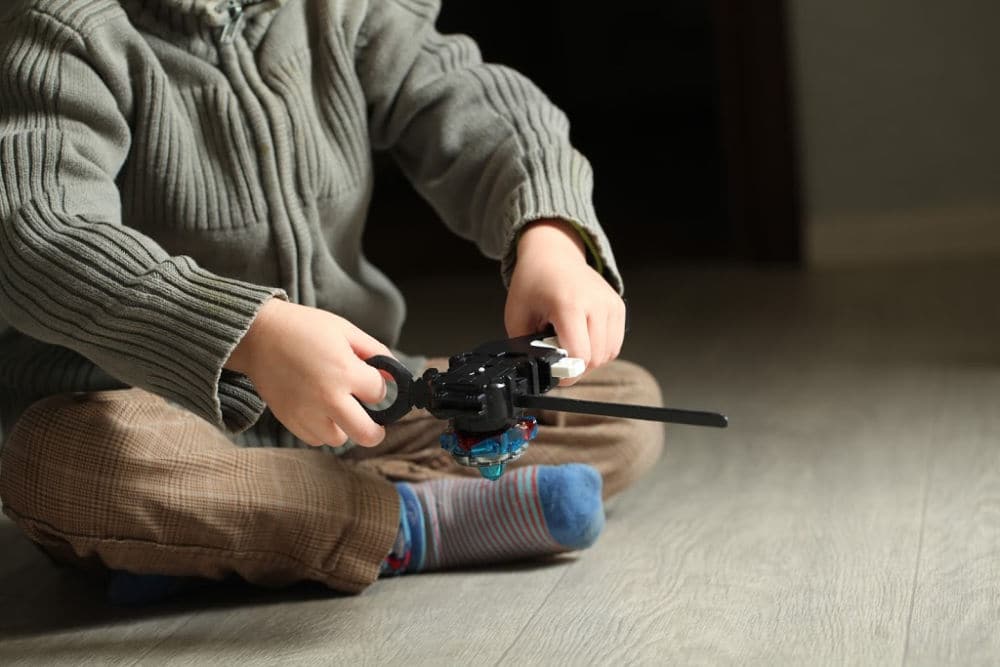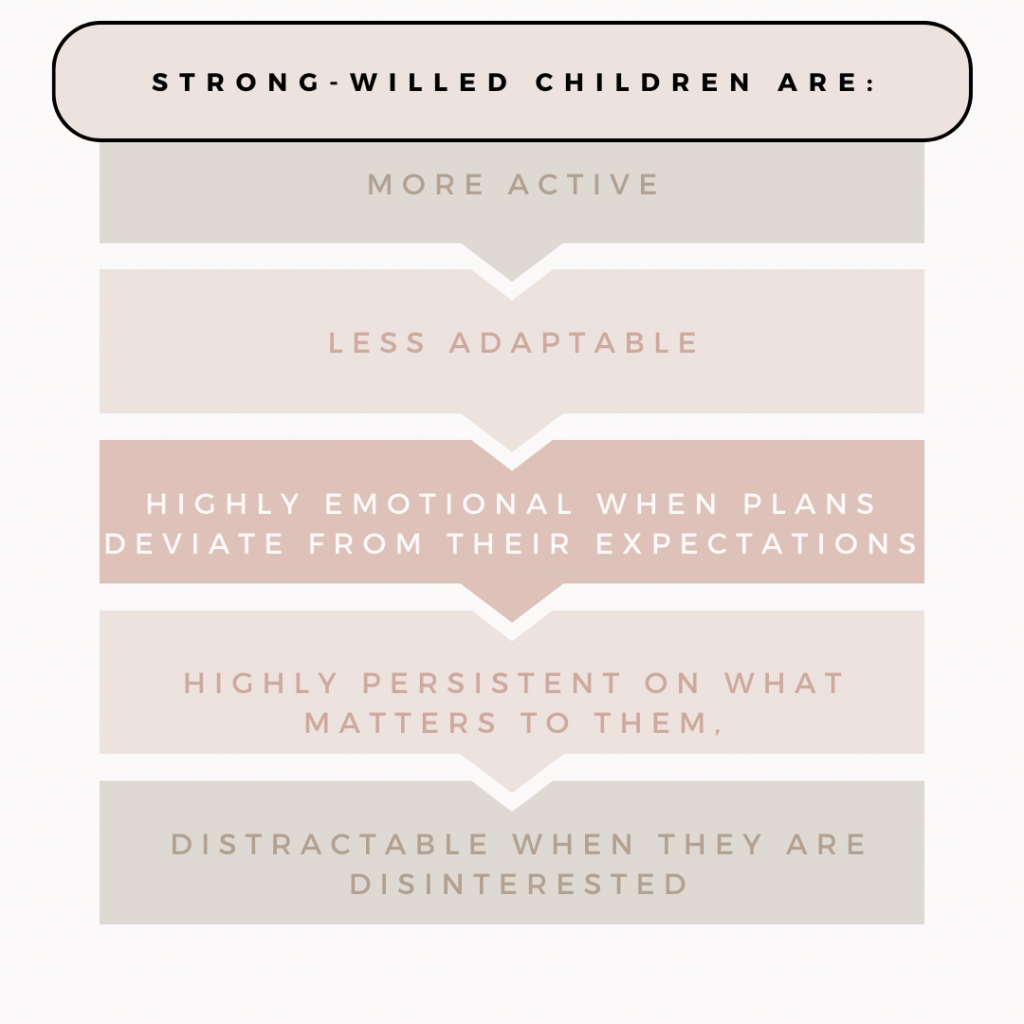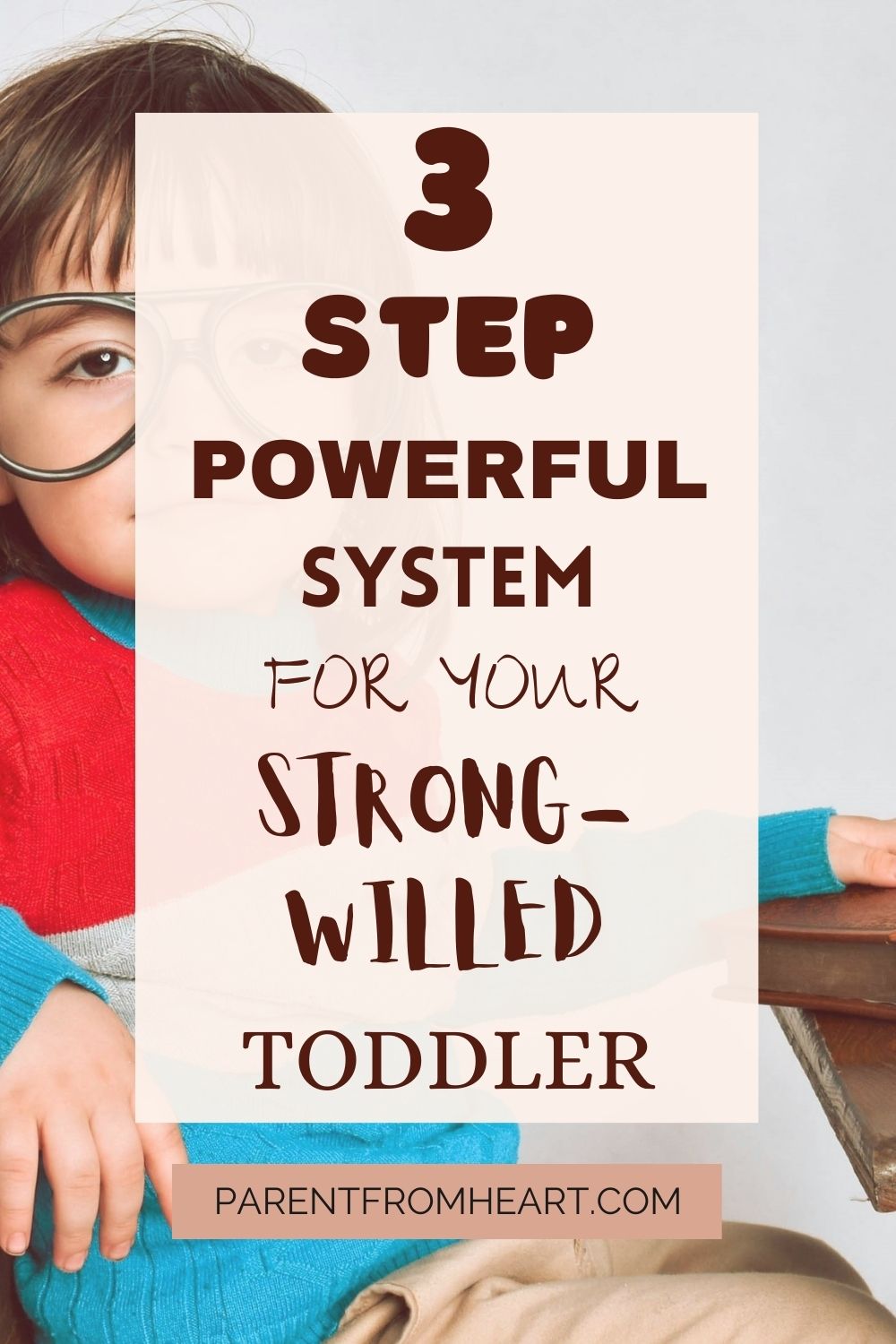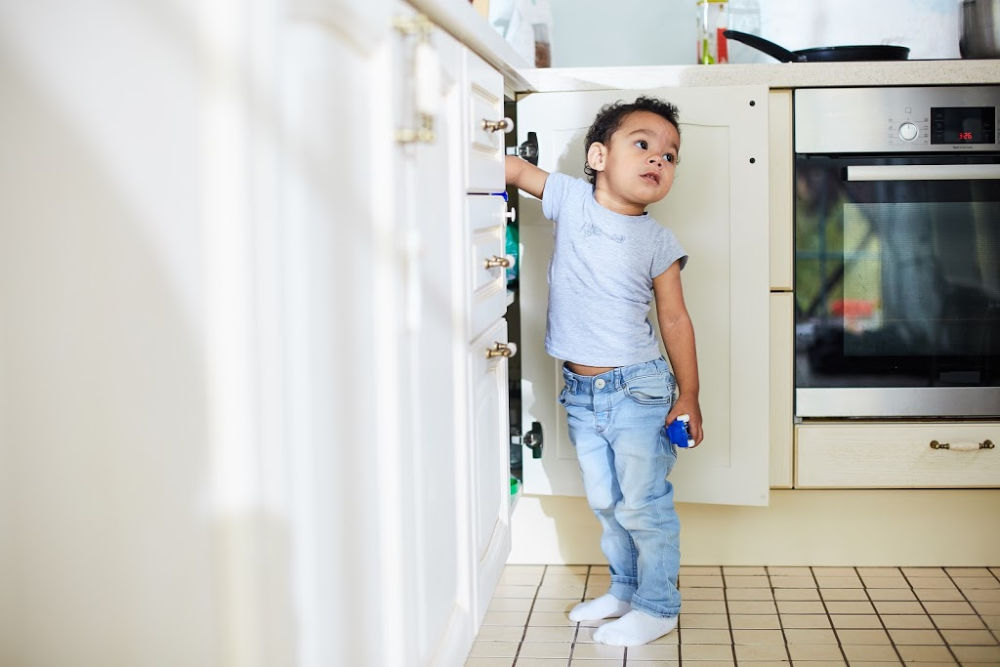Table of Contents
- “We’re running late,” I announced. “I need everyone dressed and in the car quick!”
- Transitions can be hard. And so I promised myself no what my strong-willed toddler threw at me, I would remain calm.
- How do I know I’m parenting a strong-willed toddler? Aren’t all toddlers strong-willed at times?
- Known as the stage of autonomy vs. shame and doubt, children at this stage want control over seemingly everything but some of their favourites include:
- Because all toddlers are willful, how do you know you’re parenting a strong-willed toddler?
- Temperament can be determined by how a child measures on six characteristics:
- Typically, strong-willed children are:
- What are the best ways to parent a strong-willed toddler?
- 2. Redirect their energy to increase desirable behaviour.
- 3. Connect to improve behaviour.
- A final note about parenting strong-willed toddlers
All toddlers can be willful and even difficult. However, you may find you’re parenting a strong-willed toddler if your child tends to be prone to power struggles, is highly emotional and is determined to a fault. Fortunately, there are three powerful positive parenting strategies that will improve cooperation and calm tantrums in the most strong-willed children.
Between sniffles, he said, “I sad at Mama.”
It seems like the emotional storm was starting to pass. But it had been a storm indeed.
The morning had started off peacefully…
My six-year-old and my two-year-old sons sat at my feet playing Beyblades.
The school year was coming to an end and I was exhausted from doing all. the. things. But it was the first day of summer vacation and my black coffee tasted particularly sweet.
Sure, my two oldest children had swimming lessons late morning, but I had zero sense of urgency.
That is… until I took my last sip of coffee.
That’s when I realized that I had twenty minutes to gather all things swimming-related, slather sunscreen on three children and get in the car.
“We’re running late,” I announced. “I need everyone dressed and in the car quick!”
Picking up on my haste, my two oldest children sprung into action. I crouched down to speak to my two-year-old who was doing his utmost to get the Beyblade to work.
“It’s time to get dressed, love.”
He didn’t look up.
“I’m going to grab your clothes and I’ll be right back!”
Returning with his board shorts and t-shirt, I reminded myself to breathe.
Read: How to stop yelling at your kids using one simple strategyv
Transitions can be hard. And so I promised myself no what my strong-willed toddler threw at me, I would remain calm.
I knew switching from what my little guy wanted to do to what we had to do would be hard. So, I let him hold the bey as I slid each of his chubby arms into his soft orange shirt. He screamed once when the launcher got stuck in one of the arms of his shirt. But that was it.
Counting this as a win, I moved on to cramming red and orange beach towels and clothes into an oversized bag. Then, I grabbed my son’s shoes and scooped him up.

“I no leave. I play with my Beyblade!”
My older son corrected him, “Actually, it’s my Beyblade.”
That was, of course, the ultimate insult. Not only was I interrupting his play, but his brother was also laying claim to his current most prized possession. The tears were fast, furious, and shrill.
I squatted down again. “I know you want to stay and play with ‘your’ Beyblade but we have to get going. You can bring it with us and play with it at the pool.”
Through tears, he nodded.
Success!
We got out of the house. And, my big kids had gotten themselves in their booster seats.
Seeing his big siblings fasten their own belts gave my strong-willed toddler the idea that this was the moment he would try to buckle his car seat too.
Having no patience left, I grabbed the belts out of his hands and clipped the five-point harness.
Sobs and gasps for air punctuate his words.
“I. Say. I. Do. It. By. My. Self.” He cried the entirety of the ten-minute drive to the pool.
If you can relate to a morning like this, chances are you’re parenting a strong-willed toddler too.
How do I know I’m parenting a strong-willed toddler? Aren’t all toddlers strong-willed at times?
The answer is yes, all toddlers are strong-willed at times.
As infants gain mobility and enter into toddlerhood, their primary focus changes from wanting comfort, closeness and their basic needs met to wanting autonomy. This is why a statement like, “I do it by myself,” is typical of this age.
At this stage of life, all toddlers want to show you and themselves just how capable they are.
Known as the stage of autonomy vs. shame and doubt, children at this stage want control over seemingly everything but some of their favourites include:
- clothing preferences,
- what colour cup or plate they use at dinner,
- putting on shoes,
- choosing and organizing toys,
- and, of course, fastening seatbelts.
During this stage of development, our role as parents is to give toddlers ample opportunity to test out new skills, build self-esteem, and develop their personality traits. We need to provide positive feedback for their successes and not punish or shame their mistakes.
Because all toddlers are willful, how do you know you’re parenting a strong-willed toddler?
Unlike toddlerhood, which is a stage of life, strong-willed refers to a person’s temperament. Temperament is a biologically-based foundation for personality (1). So, even though your toddler’s strong-willed nature may be much more salient now that he is a toddler, you likely noticed his personality earlier. For example, by the age of four months, my strong-willed daughter would arch her back if she didn’t want to go into her car seat, try and take food off our plates and eat it herself, and roll along the carpet until she got what she wanted.
Temperament can be determined by how a child measures on six characteristics:
- activity level,
- adaptability,
- inhibition,
- negative emotion,
- persistence, and
- distractibility.
Typically, strong-willed children are:

- more active,
- less adaptable,
- less inhibited when an activity is something they want to do and more inhibited when it’s something they aren’t motivated to do,
- highly emotional when plans deviate from their expectations,
- highly persistent on what matters to them, and
- distractable when they are disinterested.
In general, strong-willed toddlers are harder for parents to raise because they are more active and involved in their environment. When a routine or expectation changes, they become distressed. They are adamant about what they want. In the best-case scenario, they will do their best to muster up the words to state why they don’t want to do something. Worst case, they will have an epic meltdown.
Because only about 10% of children have a strong-willed temperament, outsiders may not have experience with this level of self-advocation and outspokenness in a child. They perceive a child’s lack of compliance as being “bratty” or part of “the terrible twos.” However, as previously stated, strong-willed toddlers aren’t the byproduct of permissive parenting but a number of factors including genetics. Their personalities are more challenging. There are times when even the most experienced and knowledgeable parents wonder what they should do next. It takes a lot of hard work and problem-solving to navigate how best to manage a strong-willed child.

So this begs the question:
What are the best ways to parent a strong-willed toddler?
To start, it is best to coach your strong-willed child rather than punish him. The reason is that strong-willed children have great lifelong outcomes as they are less susceptible to peer pressure, are natural-born leaders and are more inclined to do what’s right at all costs. As such, we do not want to break their spirits. Instead, we want to encourage them to be cooperative and calm.
Here’s how.
1. Front-load as much as possible.
Simply put, front-loading is parenting before the fun or heat of the moment starts.
Some examples include:
- As I park the car, I tell my son he has to hold my hand as we cross the parking lot instead of telling him he has to as he tries to run away from me.
- Explaining that we don’t grab toys from other children’s hands when a friend comes over to play instead of after he grabs a toy.
- While adding cookies to the grocery store cart, stating they will only be for after dinner instead of the moment we’re unpacking the cookies.
Front-loading isn’t an exact science. For one, a parent can’t anticipate every situation before it happens. And secondly, toddlers have short memories and attention spans. So even if you’ve given them the heads up about something they’re still going to want cookies before dinner, forget what you’ve said, and throw extras into your grocery cart right before paying. Finally, young children won’t understand every pre-emptive warning or instruction.
That said, toddlers’ receptive language is far greater than their spoken language – this means they understand a lot. You will likely notice that when you frontload as much as possible, your children will be more compliant overall and more receptive to your reminders.
2. Redirect their energy to increase desirable behaviour.
Redirection guides a toddler’s inappropriate behaviour towards something appropriate.
For example:
- When my son hits playfully, I take his hand in mine and show him how to do gentle touches.
- If he wants to throw a ball inside, we go outside.
- When he screams, I tell my toddler to breathe and say, “Toy back, please.”
In short, redirecting involves changing the environment, telling, coaching or modelling what the child can do instead of what he can’t.
Read: How Negative Language Impacts Kids Listening and What to do Instead
3. Connect to improve behaviour.
Even though toddlers are looking for more independence than they were during infancy, they still crave connection and closeness. Children are hardwired to keep our attention because historically it kept them from being hurt by predators, drowning or getting lost. Because of this, when parents get busy, distracted or are less involved than usual, children tend to act out. They do this so that they can get the parents’ attention again.
When parents spend ample time playing with, reading to and snuggling children, their behaviour is more cooperative and less difficult.
A final note about parenting strong-willed toddlers
Though all toddlers are more willful than they were as babies, only about 10% of children have a strong-willed temperament. By front-loading, redirecting difficult or undesirable behaviour, and promoting feelings of connectedness, strong-willed children will be more compliant and peaceful.
When swimming lessons wrapped up that day, my two-year-old got all the time he needed to buckle himself in. After doing his best to do all of his buckles, he was able to do one and let me do the other.
“You did it by yourself!” I exclaimed. He clapped with pride that his determination paid off.













20 comments